70 Packs is a photo-video documented installation by the artists Mălina Ionescu and Andreea Medar that I saw at the Romanian Cultural Institute in Venice in the small gallery to the left of the ICR headquarters, on the evening of November 24, 2022. The exhibition video opened in the last days of the 59th edition of the Venice Biennale.
The placement of the narrow gallery that served as a shelter for the boats that populate the canals of Venice was certainly one of the important aspects in the choice of space. The video installation is basically a multi-channel video made up of 4 separate projections joined together to render the long and narrow character of a community table. The video, filmed in the area of rural Oltenia in Romania, in an open field, makes direct reference to the ritual context of the concept of the work: the memorial meal, still practiced in rural areas following the departure of a person from the community, repeated at clearly established intervals: 40 days, six weeks, one year, seven years, etc.
Coincidentally, a few people whose family roots happen to be in the southeast of the country attended the opening, and, in a completely unexpected way, pointed out some similarities between the rituals specific to their places of origin. For an initiate in ritual formalism, the elements that make up the frame are almost nostalgic: starting from the background that constitutes the tablecloth (once made of thin “wrapping” paper and now of polypropylene), to the small elements that make up the packs (a fruit – in the video: a tangerine, a clay or cardboard plate, a wooden spoon, a can of fish, a roll, some other foods, and a candle).
The frames of the video-installation are taken from above, and were made with a drone, offering a unique point of view, unlike the images I have from my memories of the countless memorials I participated in in Oltenia. The work has a strong ethnic identity character, but without insisting on the typical ritual formalism. It is a staging of a custom in which usually many people participate – everyone receives a food package/set. But from this installation the crowd is missing, only a few human and non-human characters are identified. The work turns into a silent table, compared to the background sound usually very loaded with the voices of the participants, as an underlining of the meaning of the memorial table: the gesture of preparing a table for the rest of the community, usually those closest to the one for whose soul the packages are given.
Although the work has a strong identity imprint, easily identifiable geographically, it is somehow universal, being specific to many ancestral cultures, with few alterations of ritual form.
An interesting parallel can be made with Zina Saro-Wiwa’s work Table Manners (2014-2016), presented at Art Basel Miami Beach by the London-based Tiwuani Gallery, which explores the political implications of Nigerian communities, highlighting the performative practices of food consumption as indispensable to the imagination of belonging in West Africa. With a strong reference to the indigenous African character, Zina Saro-Wiwa makes a formal ritualistic demonstration of the manner of daily food consumption of the West African region.
Likewise, Raul Ortega Ayala, with his performance The Last Supper, made at The David Roberts Art Foundation in 2009, emphasizes the religious component that he integrates into the artistic performance, which also involves the consumption of food. Although the collaborative work of Andrea Medar and Mălina Ionescu does not illustrate the actual consumption process, only the preparation, it is still implied. The table becomes a slightly impersonal installation, which narrates about the continuity but also about the metamorphosis of ritual practices in the spaces that still operate them. By invading the small agro-food market (the locals’ main resource for these ritualistic practices) with items imported from China, utensils made of straw, corn cobs, burnt clay, and carved wood were slowly but surely replaced by plastic cutlery, a global equalizing agent.
The video installation 70 Packs also featured in the group exhibition opened in the META space on February 17 as part of the Timișoara 2023 programme, an exhibition curated by Iris Ordean, Made-up histories have long lives, a curatorial proposal with direct reference to the anthropologist Ida Susser, who said about Thomas Belmonte’s publications, “good ethnographies have long lives,” and explores the idea of fiction-reality and ethnographic limits.
Photo and video images of the project can also be found on the website of artist Andreea Medar.
70 Packs by Mălina Ionescu and Andreea Medar took place at The Romanian Cultural Institute in Venice on 24.11.2022.
Translated by Patricia Măroiu
POSTED BY
Ilina Schileru
Ilina Schileru is a Romanian artist, curator and cultural manager. She has a master's degree in graphics at the University of Arts in Bucharest, completed in 2010. She lives and works in Bucharest and...
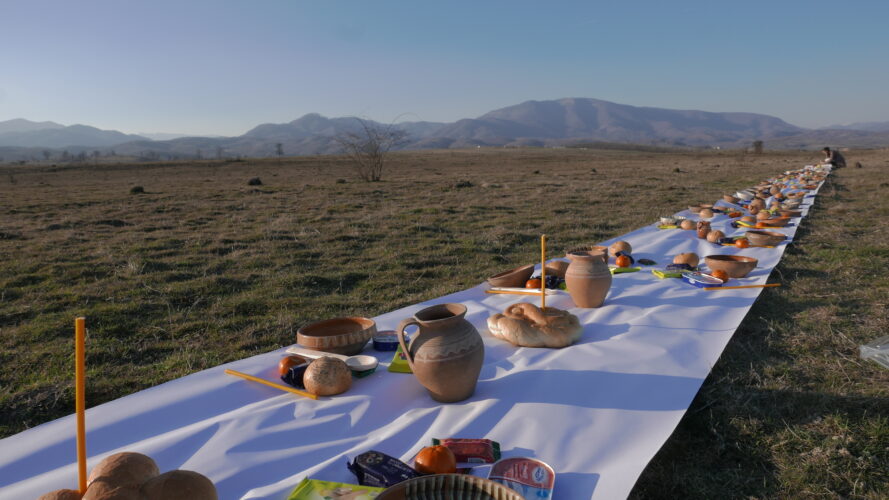
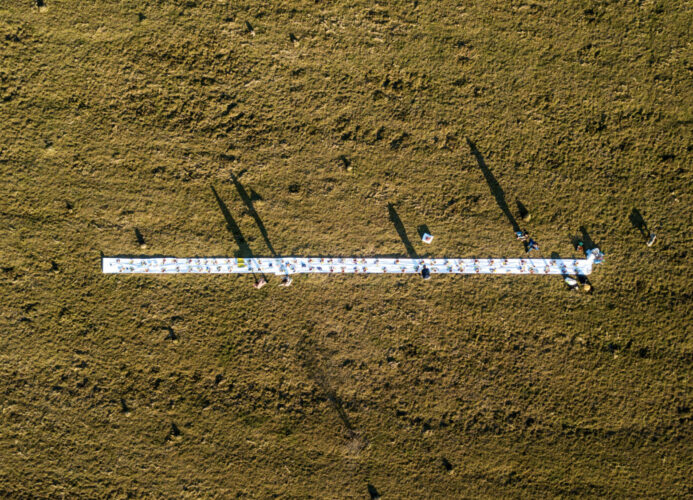
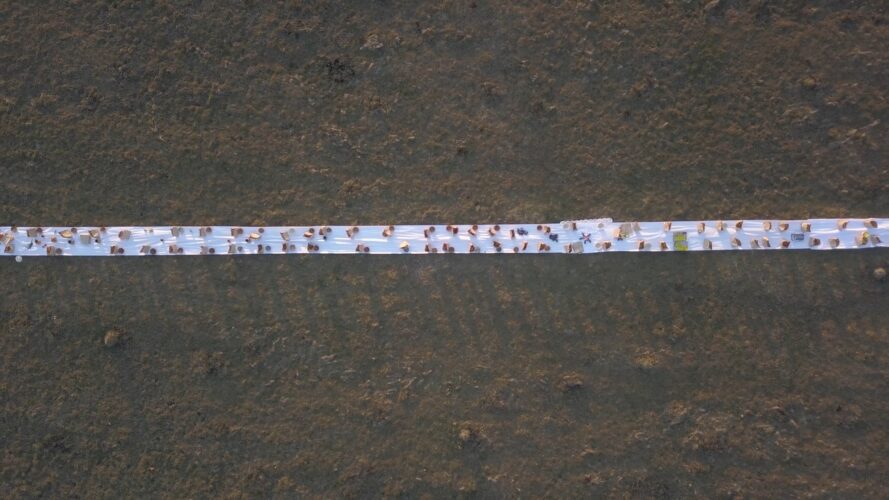
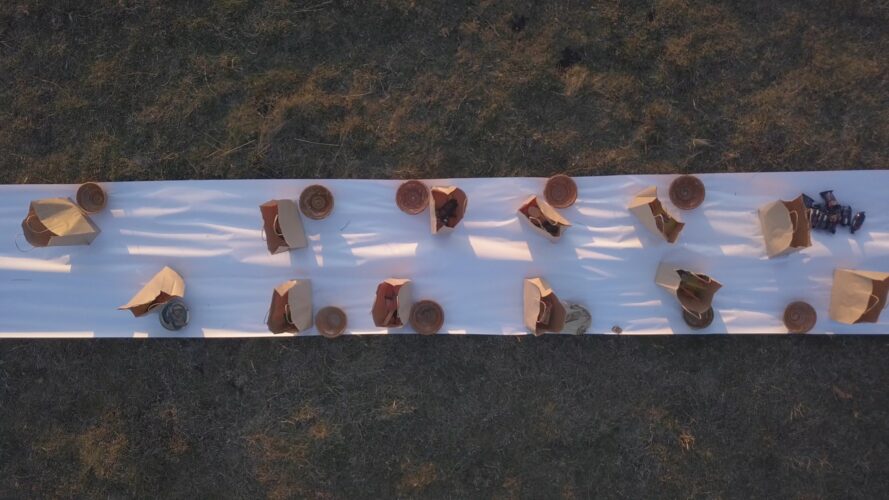
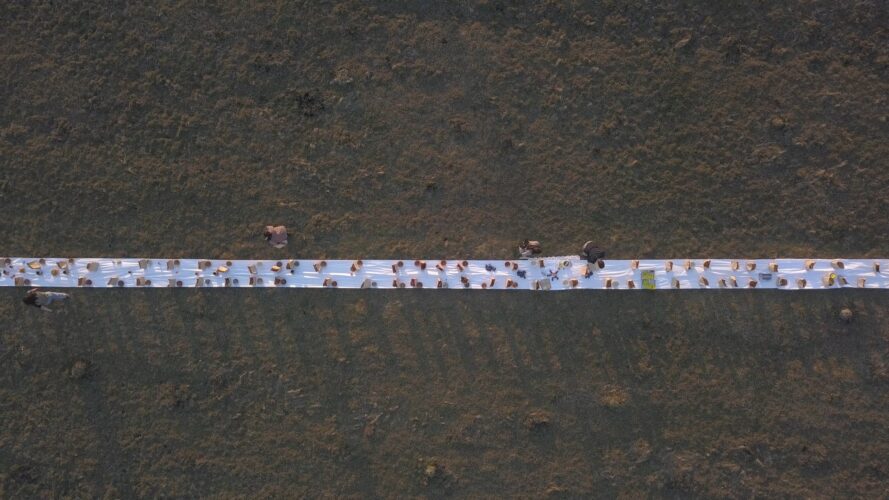
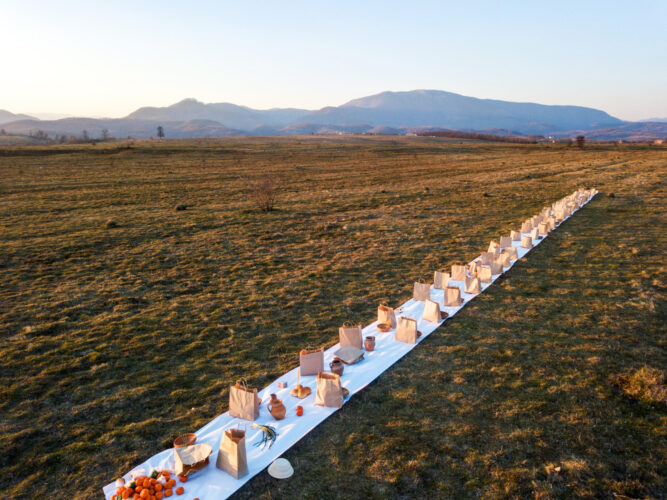
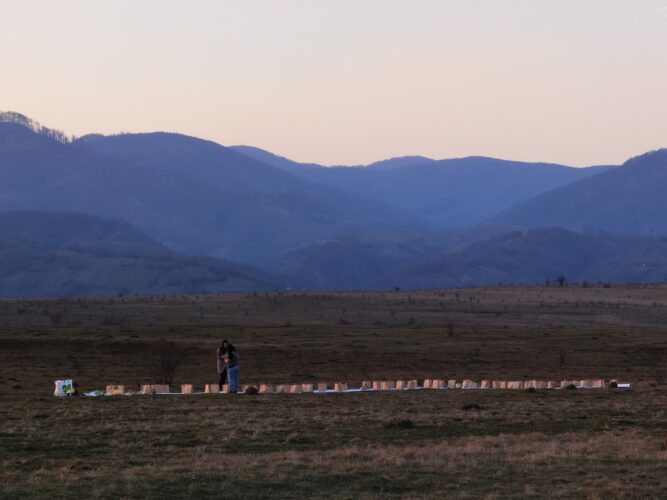
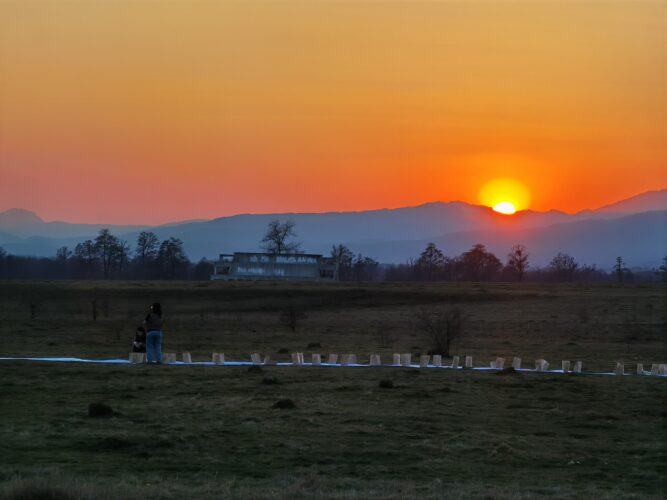
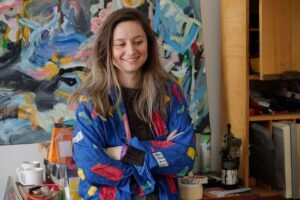
Comments are closed here.